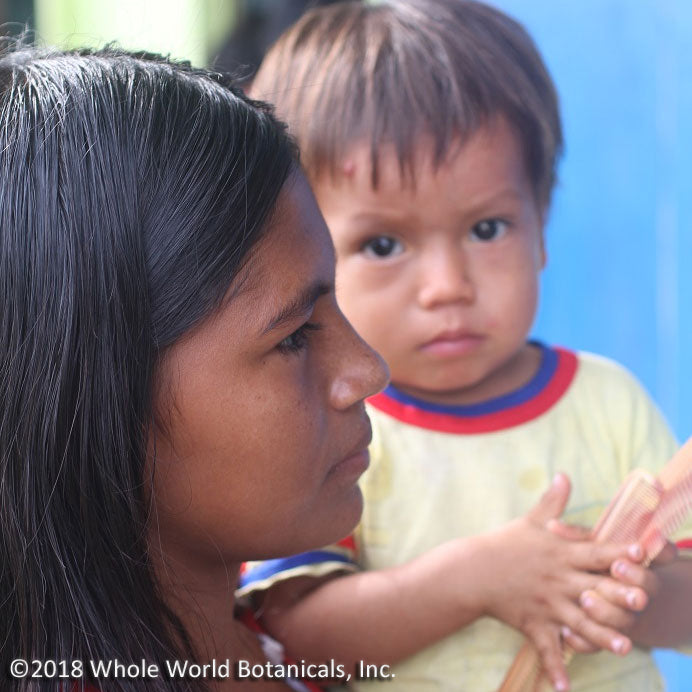
Water Women Reveal Need for Expansion of Our Social Mission
Viana Muller, Ph.D.Each time we go to visit the Camu Camu collectors who partner with us on the Rio Curaray in the Amazon River Basin, we learn more about who they are and what they need. On this most recent trip, a new area of need was brought to our attention.
First, though, we are very happy to say that when we met with the Water Women who received water filters and training last March, we discovered that the water filter project is going very well. Each filter serves four families, which is about 20 people. With 14 Water Women, most of the people in the two communities of Santa Maria and Nuevo Yarina now have access to clean water. We even had requests from other women to receive the training and filters. It was wonderful to see the families and their children drinking clear, clean water.
In the eight months since we were last there, many changes had occurred in the community. A huge flood had destroyed the secondary school the year before and, working together in their spare time, the community had rebuilt the school. WWB gave the money to build a large boat that takes the high school students back and forth to their new school, which has become a 49-minute boat ride each way. The new location is on much higher ground where it will not be flooded again. Emily, the chosen leader of the Water Women, and her husband had built a small one room church structure behind their home where people meet on Sundays. New babies had appeared. In fact, the leader of the Water Women in Nuevo Yarina was in labor and giving birth on the very day we arrived.
While we were talking with the people and hearing their news, a new need surfaced. We had brought them gifts in gallon containers of our Chanca Piedra product, along with Cat’s Claw tea, Camu Camu capsules, and Desmodium liquid extract. We entrusted them to Emily who will distribute the botanicals to those with health issues. The women were thrilled with the gifts and kept asking questions about what the herbs were good for. They started bringing up health issues in their families and asking our team which herb would be good for different conditions. For example, one of the women asked if we had anything that would help her husband’s prostate issue. We told her we have Royal Lucraco, which is a desert plant shown to be supportive of the prostate. It can reduce urinary frequency within 5 days and PSA levels in 6-8 weeks. She was very interested and asked if we could bring her some Royal Lucraco next time we come. As we provided them with an impromptu herbal training, we realized that even though these plants grow all around them in the Amazon, most of the people have lost the connection to their traditional herbal knowledge.
Now that we have this awareness, we feel that we must always take our products to give as gifts to the people who collect and grow the medicinal plants for Whole World Botanicals. They may not have access to these healing botanicals in any other way. The Water Women were asking us to bring more of our "medicine" to them. And we will. In fact, we are exploring setting up a non-profit organization that can make Whole World Botanicals products available to the indigenous people of Peru on a much larger scale.
In addition, we have plans in the future to supply our Camu Camu collectors with the seeds of these rainforest plants so they can start planting them in their existing vegetable gardens. We want to help them preserve the Camu Camu for their own use. We learned the importance of this from another community that realized how valued Camu Camu is around the world. They started preparing the plants in forms appropriate for their own use. Some of the botanicals our collectors can grow themselves, such as the Camu Camu and the rainforest plants, but not the Maca root from the mountains or the Lucraco from the desert. That’s where we can help them by supplying gifts of our WWB products.
We will keep you posted as these endeavors progress. Thank you for your continued support of Whole World Botanicals and, through us, the indigenous people of Peru.








